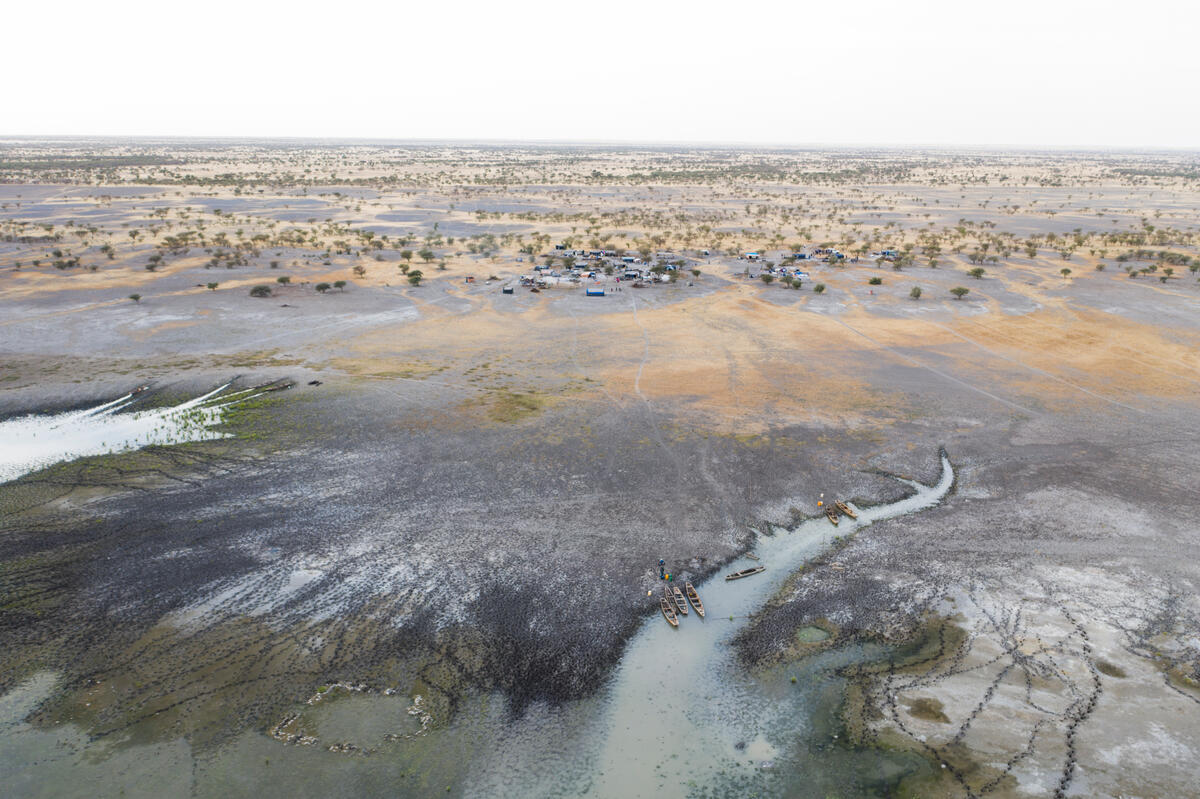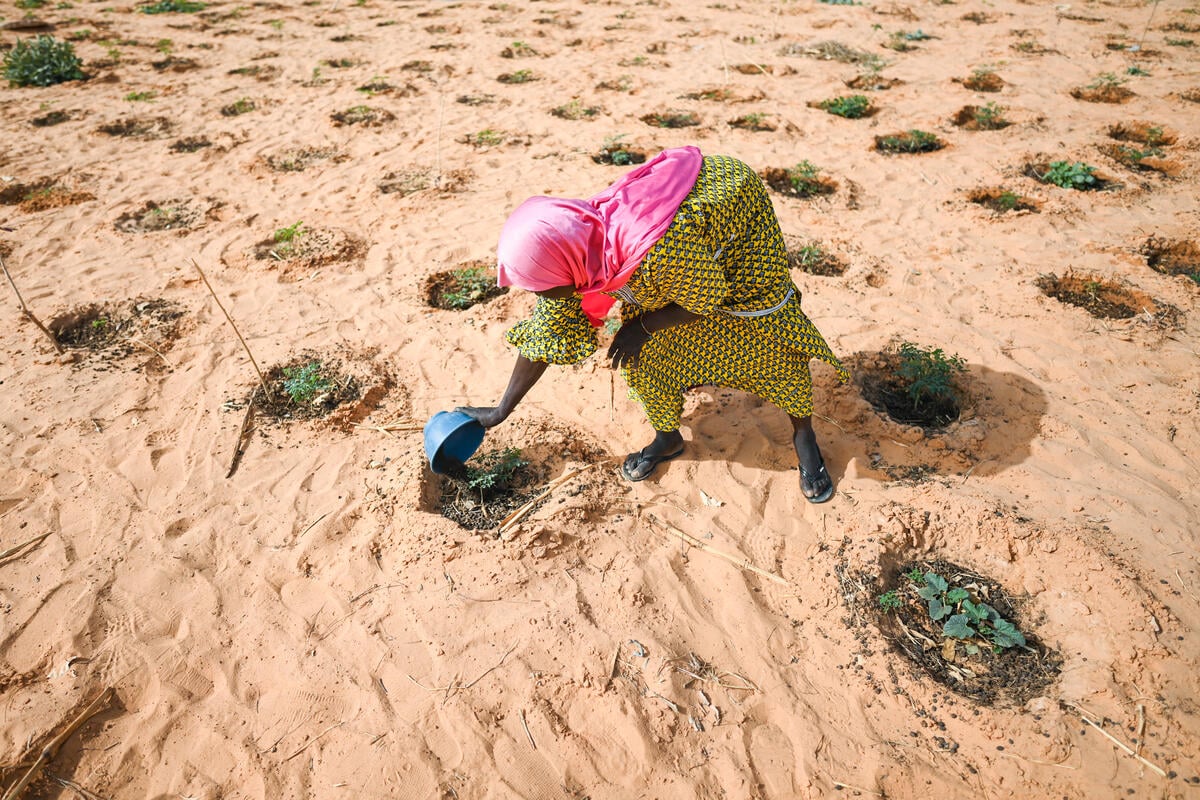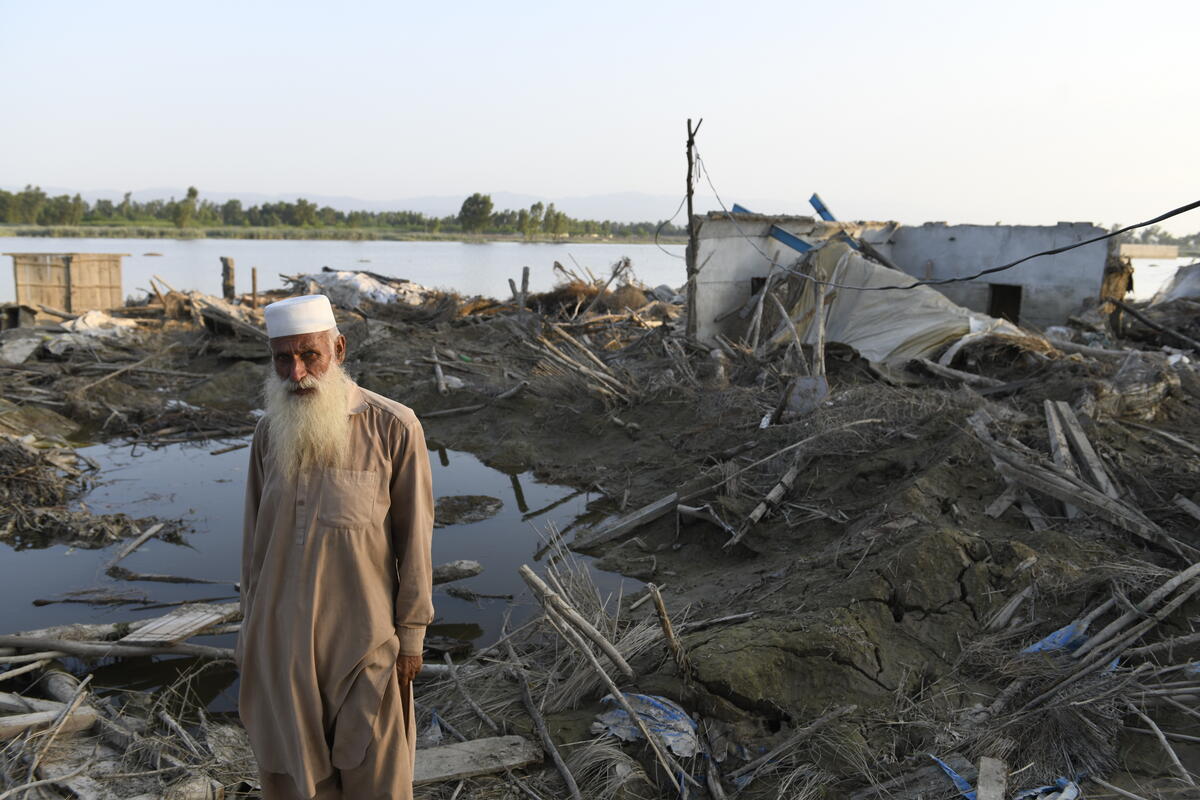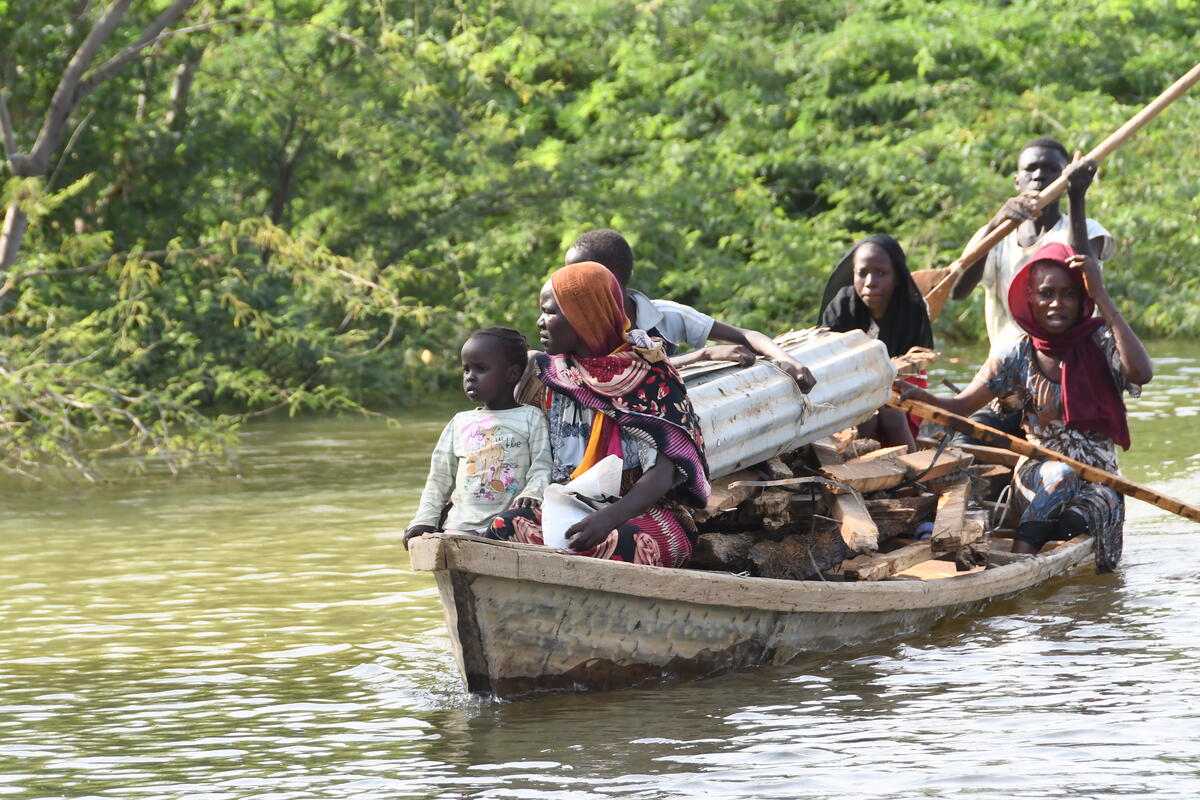UNHCR responds after annual rains claim another victim in Kakuma
UNHCR responds after annual rains claim another victim in Kakuma

KAKUMA REFUGEE CAMP, Kenya, September 9 (UNHCR) - Leonie Ndayishimiye stares blankly at the ground, oblivious to the cries of the infant daughter cradled in her arms.
The 27-year-old Burundian is mourning the loss of her husband, who drowned days earlier when a flash flood swept through north-west Kenya's Kakuma refugee camp, destroying 50 shelters and leaving hundreds of people displaced, belongings washed away. The rains also damaged access roads and latrines.
UNHCR and its partners have responded quickly to the floods, working hard to avert disease and providing aid. But the death of her husband, who was rushing back from work to help Leonie cope with the rising floodwaters, is a personal tragedy as well as a disaster for the family.
"I have no idea where to begin," she told UNHCR as tears welled in her eyes. "I have four children and no source of income. My husband was all we had," added Leonie, who arrived in Kakuma in 2011 after fleeing persecution in her homeland.
The rains come every year to Kakuma and every year someone like Leonie loses something precious. "This is a vicious cycle," said Girma Gebre-Kristos, who heads UNHCR's Kakuma office. "The camp's location makes it vulnerable to flooding and almost every year we have to deal with extensive damage caused by flash floods."
He and others had hoped that this year Kakuma, which provides shelter to more than 172,000 refugees, might be lucky amid changing weather patterns. The heaviest rains normally come in April and in the previous two years the low-lying area had been spared the most destructive downpours.
But on that fateful Monday, the skies opened again and the rain started pouring down as Leonie's husband, Mark, worked in one of the camp farms run under UNHCR's livelihoods programme. She had called him in a panic when their house started to fill with water. He dropped everything to rush home and help his wife salvage their belongings. But he never made it.
UNHCR and its partners responded quickly to the disaster, helping people like Leonie and taking measures to prevent outbreaks of malaria and waterborne diseases such as cholera. "Children are playing in pools of stagnant water and people have to wade through dirty water to access parts of the camp," UNHCR's Gebre-Kristos said.
He added that UNHCR and its partner, the International Rescue Committee, have heightened surveillance for waterborne diseases and pre-positioned stocks of anti-malaria drugs and other essential medical supplies. Information campaigns have also been conducted to inform people about proper hygiene.
UNHCR is also working with the Norwegian Refugee Council (NRC) to replace latrines that collapsed or were submerged. Pools of stagnant water have also been decontaminated to reduce risk of disease. Families that lost their food have been issued with extra rations and more than 60 lightweight tents have been given to families whose shelters were destroyed.
For Leonie, staying at her home is causing stress. "I want to start my life away from here because I have a lot of painful memories," she said, staring at the walls. UNHCR is looking at immediate ways to offer her material and psychosocial support.
Meanwhile, heavy rains continue to pose serious challenges. The interventions by UNHCR and partners are temporary solutions. More rain will cause more problems because of the limited space for relocating affected families. "We need to rehabilitate existing flood mitigation structures and construct new ones," said Gebre-Kristos. "A lasting solution is paramount and is needed urgently."
It's too late for Leonie. But her spirits rose a bit when she was told that she would be moved to a better house and taught a trade so that she can earn a living and support her four children, ranging in age from two years to seven.
"There is an old Burundian proverb that says; when something bad happens, we should look for the good that comes out of it. I think I can have some hope now," she said.
By Cathy Wachiaya in Kakuma Refugee Camp, Kenya








